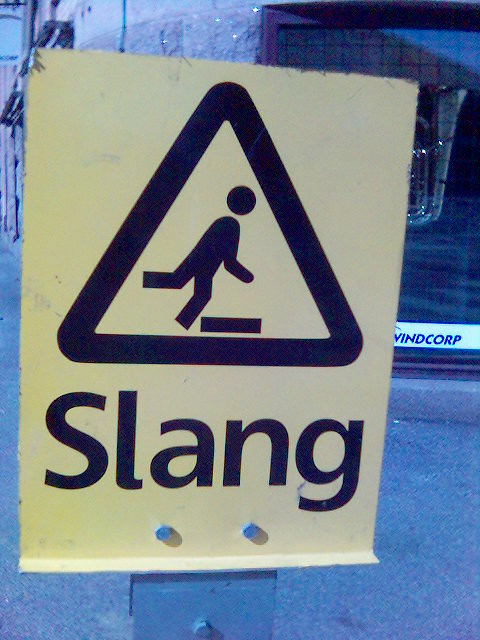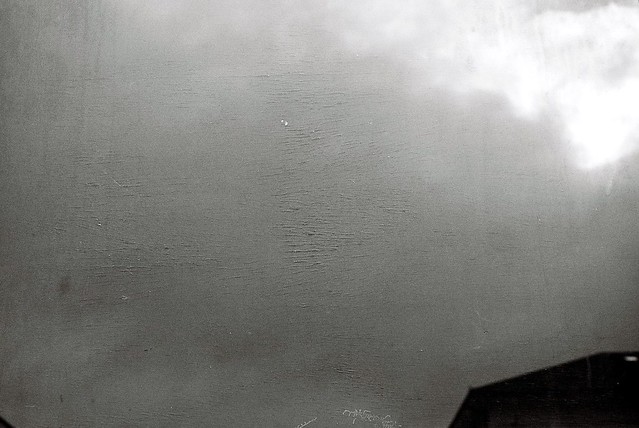This is an essay that I wrote last year on changing concepts of professionalism for a module on the Cardiff EdD. The ideas need a lot more work but there may be some parts that are of wider interest including a history of medical professionalism in the UK.
Governmentality refers to a Foucauldian concept of the "art of governing". If you have any thought on what I have written then please leave a comment. I'm publishing it today as a follow-up to some discussion with Cl are Gerada.
Governmentality and Medical Professionalism
Saturday 24 September 2011
Wednesday 14 September 2011
Social media, black humour and professionals...

Last week I presented at #altc2011 (the Association for Learning Technology Conference). My topic was "On being public.... how social media reshapes professional identity". One of my main points was that social media almost necessitates a reflexivity which we can get by without in face to face encounters. The pace of interaction is fast, we're dealing with people we may not otherwise come across, and norms are still being established. In fact we may never even get to the stage of having 'social norms'. Probably the only way to operate in these spaces is by having internalised your own values, but also being able to step outside of those values and to see what has shaped who you are and what you think, and to afford the same courtesy to others.
A few days later I came across a discussion between several male doctors on twitter which caused me to reflect on this very topic. The doctors were using slang, which I have not come across before, to refer to the wards in which they might have been working. The terms used were 'labia ward' and 'birthing sheds' to refer to the delivery suite where women give birth, and "cabbage patch" to refer to the intensive care ward where many patients are unconscious.
I was shocked at this and angry and did query the doctors about some of the other things they said, but I felt I couldn't challenge them directly at that time about this language. One of the doctors referred to midwifes as 'madwives' and was challenged by a medical student to justify this position. In the meantime I pulled together the tweets using a curation tool and informed the doctors involved that I had done this. I did not tweet the link publicly and did not endeavour to have a conversation in public about this. However I did feel the need to check with others how they felt about this exchange so I sent them a link to the collated tweets by private message. I wanted to find out if my own shock and revulsion was typical and also to gain some advice on what to do about this.
Almost all replies stated that they found the discussion insensitive. Doctors seemed to be as likely to be offended as non-doctors. Some thought that this was risky behaviour because regulators may take action. I personally think this is very unlikely and do not consider these tweets a disciplinary offence.
How did I feel?
I was surprised at the strength of my reaction to this. I wanted to let it pass but I also felt that this was not appropriate. I felt that the language objectified women and was misogynistic. I privately told one of the doctors this and asked that he removed the tweets but he refused to do so and suggested that my feelings of offence were my problem.
Some doctors have thought that I am concerned that this kind of talk will 'bring the profession into disrepute'. But I am not. I believe that patients make assessments of us as individuals. I don't believe that the public will think less of doctors after this. As has been pointed out, programmes like "Cardiac Arrest" have portrayed doctors as cold and callous individuals. But there has been no corresponding fall in trust in the "profession".
The doctors involved in the initial discussion have suggested that my views to their use of slang are atypical. Only a very small number of their followers have raised any kind of objection to their use of this language. Perhaps inside more women are offended but they feel that they can not speak up because to have your views dismissed publicly is humiliating. I don't know. But I don't think that this is an issue of numbers.
My account of this episode, so far, has been very personal. But I also want to place this story in a wider context within the medical education literature on professionalism and black humour. Is the use of derogatory humour or slang by medical professionals inappropriate? Berk thinks that ;
"Simply put, derogatory and cynical humour as displayed by medical personnel are forms of verbal abuse, disrespect and the dehumanisation of their patients and themselves. Those individuals who are the most vulnerable and powerlessin the clinical environment – students, patients and patients’ families – have become the targets of the abuse. Such humour is indefensible, whether the target is within hearing range or not; it cannot be justified as a socially acceptable release valve or as a coping mechanism for stress and exhaustion."
Berk was writing this in response to research by Wear and colleagues on medical students and residents attitudes to this kind of humour. It is interesting to note that usually it is referred to as being performed behind closed doors. Some accounts suggest that it is about establishing insider and outsider groups if performed in public.
Wear suggests that doctors "throughout academic medicine might begin candid discussions of derogatory and cynical humour in their particular cultures in order to become better aware of their participation in it and their responses to it when they overhear it from others".
And so I am writing this. Social media- blogs and twitter- are my culture. I want to raise this topic here- in this public space- so that I can think about how I respond to it in the future when I 'overhear' it. The next time I may choose to ignore it. Despite Wear's suggestion that incidents like this provide 'teachable moments', and should be challenged, the spaces of social media are much more exposed than a hospital corridor.
But at the same time my blog is also a relatively safe place for me. I await your thoughts.
Monday 12 September 2011
My #altc2011 presentation.
View more presentations from Anne Marie Cunningham
If you view this directly on slideshare the speaker notes might make my points much clearer I hope. When the video of the presentation becomes available I will upload that too.
Enjoy and any questions/comments please post them here!
If you view this directly on slideshare the speaker notes might make my points much clearer I hope. When the video of the presentation becomes available I will upload that too.
Enjoy and any questions/comments please post them here!
Sunday 11 September 2011
A story needs a story-teller...

On September 11th 2001 I was working in Bristol as a doctor training in public health, I had arrived in Bristol less than a month before and still hadn't found anywhere to stay. Some friends said I could house-sit for them, whilst they were on holiday.
I watched the tragic events that day on a computer screen at work. I went back to the empty house and felt very alone. I hoped to hear that my friends in the US were OK. I felt powerless.
Today Twitter is full of many sharing their personal reflections of that day. Atul Gawande has been writing about how it was to be a doctor in New York. He is sensitive. But an account @911tenyearson by the Guardian, which was tweeting the factual series of events 'as it happened' has stopped. There are many tweets describing that stream as "bad taste" and "distasteful", but I think that it is the comment that these tweets were "blunt and faceless" when a "story needs a storyteller" which perhaps gets closest to why so many were annoyed.
Many expect social media presence to show sensitivity today. Many don't want cold hard facts. But others can't see why the stream ended.
Saturday 10 September 2011
"What is evidence?" - tweets from a #amee2011 symposium
After 2 weeks of conferences I have a lot of SoMe activity to catch up with! This storify is for @mikey3982. Luckily I had set up a tweet archive of #amee2011 tweets with FoxePractice. I then have a scoopit chrome plugin that makes it quite easy to move tweets from the archive to a storify. A lot of my tweets contain images of slides but scoopit doesn't detect and embed these automatically as keepstream does- BUT- keepstream doesn't embed nicely (last time I checked anyway) and there isn't a chrome plugin.
I've also added in some tweets from the afternoon synposium on the contribution of the social sciences to medical education research. Greenhalgh was also present for this.
I've also added in some tweets from the afternoon synposium on the contribution of the social sciences to medical education research. Greenhalgh was also present for this.
Friday 9 September 2011
Social media, organisations, identity and anonymity- an interview
Steve Wheeler interviewed me at the ALT-C conference on Wednesday just after my presentation on social media and professional identity. I will blog that shortly but here is the interview in the meantime.
Watch live video from jamesclay on Justin.tv
Watch live video from jamesclay on Justin.tv
Subscribe to:
Posts (Atom)